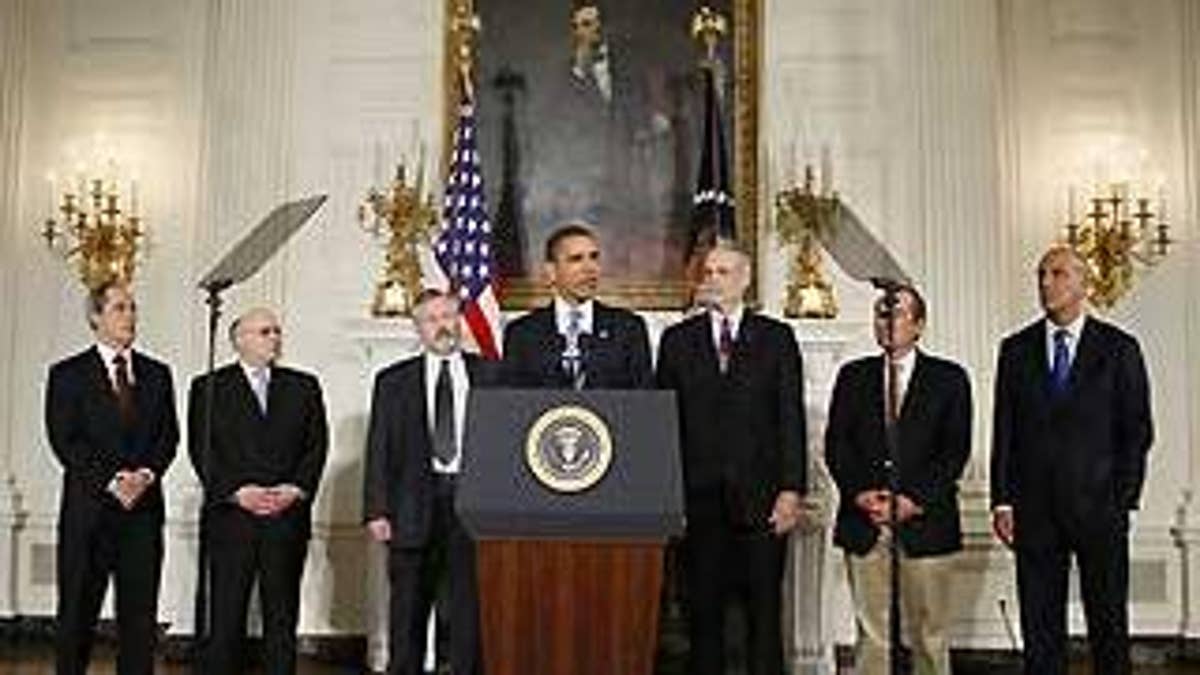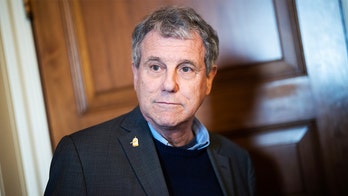
With health care reform on the horizon, the medical and insurance sectors are offering unprecedented concessions to the Obama administration in an apparent bid to have some say over the direction of the overhaul.
But analysts say the architects of that overhaul ought to be cautious as they evaluate the concessions and take a "trust but verify" approach to industry promises.
Insurers and providers are wary about the possibility of a government-backed public plan, which Democrats are pushing as one component of comprehensive health care reform. That fact is hard to ignore as industry representatives pitch $2 trillion in projected health care savings over the next decade.
Though White House officials would not discuss any connection between the industry's eagerness to help and its concerns about a public plan, others said it's plain as day.
John Sheils, senior vice president for health care consultant The Lewin Group, said health care companies are trying to give the Obama administration what it wants -- cost control -- in a bid to eliminate the need for a public plan.
"I think they hope to stop the public plan by making its primary function unnecessary," he said. "The primary function of the public plan is to reduce costs."
Different proposals carry different consequences for the health care industry.
A recent study by The Lewin Group estimated that, if Medicare payment levels are used, a public plan open to all individuals and employers would enroll about 131 million people, with up to 119 million switching from private health insurance to the public option. That's about 70 percent of those in the private insurance system.
But a plan that is open only to individuals, the self-employed and small businesses -- as Obama proposed during the campaign -- would have a far less significant impact. The study estimated 43 million would enroll in that plan, with about 32 million -- 19 percent -- switching over from private coverage.
According to the study, either scenario would reduce the number of uninsured by about 28 million -- with those who aren't joining the public plan entering Medicaid through expanded eligibility.
The Lewin Group study also estimated the full-blown public plan would reduce hospital income by $36 billion in 2010, and physician income by $33 billion. The less-sweeping proposal would increase hospital income by $11 billion and reduce physician income by $3 billion, according to the study.
Sheils said the latter would obviously be more appealing if a public plan becomes inevitable.
"If it becomes clear that the public plan is going to happen politically, I'm sure they'd want to go for a middle-ground solution like that," he said.
Given the dollars-and-cents interest industry representatives have in tailoring a health care overhaul to their liking, analysts said the administration should make sure that any concessions put on the table amount to more than a verbal guarantee.
"Voluntary efforts have been tried and failed in the past," said Karen Davis, president of The Commonwealth Fund, a private foundation that supports health care research.
She recalled how many of the same health care organizations pledged to hold down costs during health care talks in the late 1970s, when inflation was rapidly increasing. She was working on the issue in the Carter administration at the time.
"In '81, it basically fell apart," Davis said.
Likewise, the health care industry's offer to slow the rise in health care costs mirrors a trend that goes back to 1993, when President Clinton launched his reform effort. The rate of health care inflation had been in the double digits before that and it began rising after the Clinton administration's effort failed, reaching its most recent peak of 9 percent in 2002. In 2006, health care consumed 15 percent of gross domestic product.
The lesson? "Some mechanism is likely to be needed in health reform to actually ensure that these savings are achieved," Davis said.
Though President Obama hailed Monday's talks as "historic," House Minority Leader John Boehner criticized the administration for not discussing a mechanism to keep the private industry to its promise.
"Republicans want to work with Democrats to ensure every American has access to affordable, high quality health coverage," Boehner said in a written statement, voicing support for the "voluntary reforms."
"But today's announcement promises savings with no concrete plan to achieve them and no enforcement mechanism if they don't," he said.
Boehner said House Republicans are working on their own "vision of health care reform" and hope the president considers it going forward.
Michael Cannon, director of health policy studies with the Cato Institute, questioned the motives of industry representatives.
"Remember, these are lobbyists that are promising to cut health care costs," he told FOX News. "I think it's a little too vast a departure. When do you ever hear lobbyists say, 'Hey we want to reduce revenue for our members'? There's something fishy going on here."
Industry representatives are not proposing slashing prices but slowing the rate of growth. They propose a 20 percent reduction in the projected rate of growth over 10 years.
Advocates say regardless of the motive industry representatives have in coming forward, reform is in their best interest anyway.
"I think we all should be very positive about this. This is a vast departure from where these groups were in '93, '94," said Elizabeth Carpenter, associate health policy director at the New America Foundation. "They realize that the current trajectories are just not sustainable."
In his budget proposals, Obama has accounted only for revenue to cover about half of the projected cost of turning health care coverage over to the government. The $2 trillion in savings would be spread across the board, but could help the federal government cover those costs and extend coverage to the nearly 50 million uninsured.
Carpenter said whether the cost-savings is more or less than $2 trillion, "We know it's better than no reduction."
Sheils said it will be hard to actually verify the savings 10 years down the road, since "you have no idea what spending would have been." White House officials suggested it may be up to the media to ensure commitments are met.
But despite lingering questions about how the health care groups would follow through on their promise, their sheer interest in doing so was widely seen as a positive step.
Davis said many hospitals and physicians, particularly those serving uninsured and low-income patients, are poised to benefit financially from health care reform.
She said providers are more interested in ensuring the public plan pays sufficient rates than in derailing the public plan altogether. She noted that the government already reduces costs for its public plan by reducing overhead, suggesting it could negotiate on the rates.
It's unclear what the administration and congressional leaders are willing to put on the chopping block in exchange for major concessions.
Asked what the groups want in return for the cost-savings, a senior administration official said they just want to be on board with the president.
"They said to me that they know they have to do their part," the official said.
In the course of the health care reform debate, industry representatives have offered to cut back on charging higher premiums for sick people and ending the practice of denying coverage to the sick.
In a letter to Obama Monday, health care organizations pledged an "unprecedented effort" to help transform the system.
"We are developing consensus proposals to reduce the rate of increase in future health and insurance costs through changes made in all sectors of the health care system," they wrote -- from adhering to practices that reduce hospitalization to improving health information technology.
Despite the pledge, an aide with the Senate Finance Committee said Chairman Max Baucus, D-Mont., one of the key voices in the health care debate, is for now keeping the public plan option "on the table."
In a written statement, Baucus praised the industry groups for their proposals Monday and said he looks forward to working with them.




